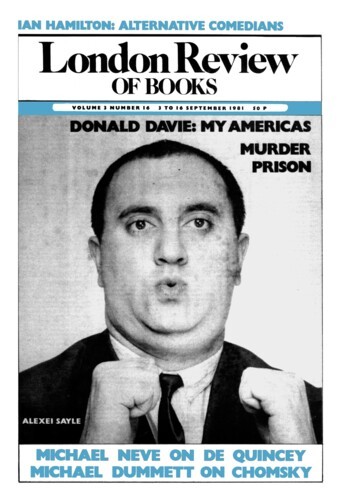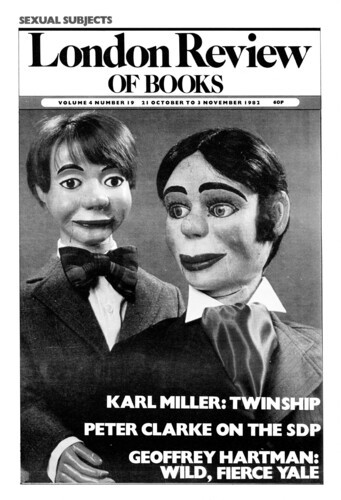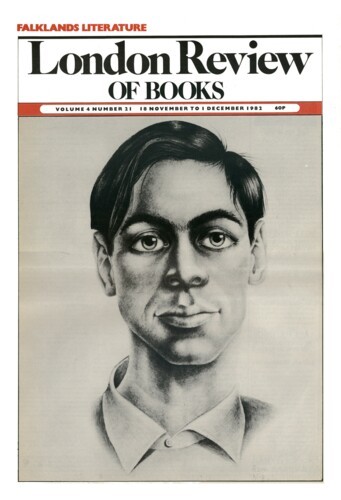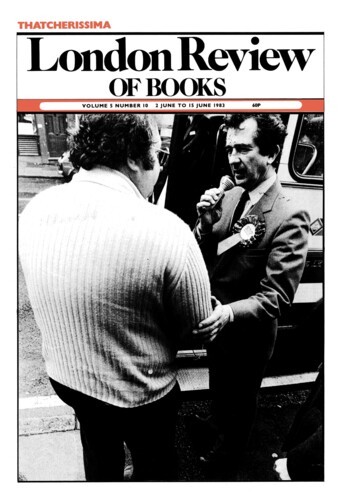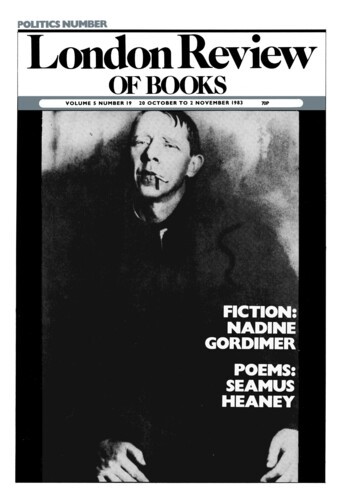The town of Stockbridge, in Massachusetts, is weird. Not in the diminished, all-too-contemporary sense of merely odd, or strange, but weird as Shakespeare might have meant it: ‘having the power to control the fate or destiny of men’, ‘partaking or suggestive of the supernatural’ (OED). Weird, too, in the way that Tennyson meant it, particularly as the word appears in his poem ‘The Princess’. The visitor to Stockbridge is liable to feel certain ghostlinesses in the town: a gloomy Puritan history lingers, a trace, perhaps, of the ferocious Calvinist divine Jonathan Edwards. There is also the eerie emptiness of nature in New England, the dark, wooded landscape that seems hollow, and menacing, without a history. Even the streets of Stockbridge seem empty. No one is around. They are, no doubt, in their cars, and another poet of weirdness, New England weirdness, Robert Lowell, knew also about cars: ‘A savage servility slides by on grease.’ There are antique shops in Stockbridge, where antique seems to mean the day before yesterday. And grand white wooden houses, behind evergreen trees, houses which turn out to be lunatic asylums. Stockbridge, peaceful home of Norman Rockwell, the people’s artist, who gave Middle America what it wanted. Stockbridge, where Melville said something unmemorable to Hawthorne. Stockbridge, the site of the family grave – known, weirdly, as ‘the Pie’ – of the Sedgwick family.
The town of Stockbridge, in Massachusetts, is weird. Not in the diminished, all-too-contemporary sense of merely odd, or strange, but weird as Shakespeare might have meant it: ‘having the...
